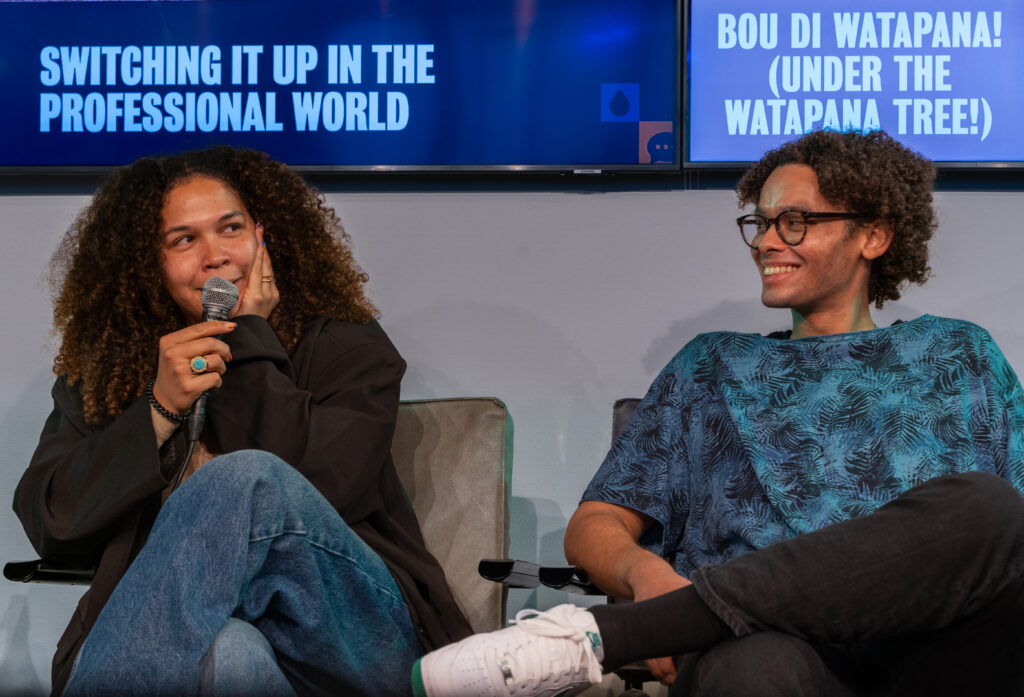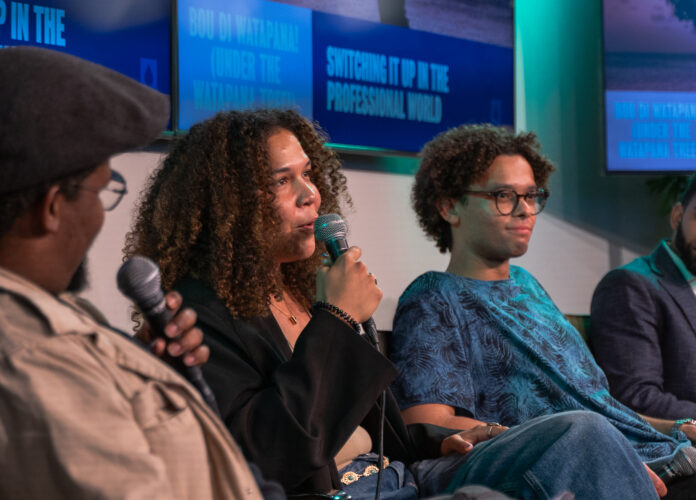The networking event ‘Diaspora Dialogues; Bou di Watapana’ successfully brought the Caribbean diaspora in the Netherlands together for the third time on May 16 to share experiences, knowledge, and insights. The inspiring gathering in Amsterdam, organized by the WeConnect Foundation and “Pakhuis de Zwijger”, focused on the theme ‘Switching it up in the professional world’.
The central topic of the evening was code-switching: a phenomenon where people adapt their language, and sometimes their attitude and/or behavior, to match their surroundings. A panel of four Caribbean professionals from various fields shared their experiences with code-switching in the workplace. They addressed questions such as: when do you switch language or behavior and why do you do it? What happens if you don’t? How does it feel to hide part of yourself to be accepted at work?
For the attendees, code-switching is practically second nature. Depending on the situation and the people present, they choose the ‘appropriate’ language and behavior. “It sometimes feels like there are multiple versions of myself,” someone from the audience aptly expressed. In the work environment, Dutch is usually the main language, while privately, they often switch to English or Papiamento.

Aruba born dance teacher Eva Croes has integrated code-switching into her teaching method. “My students are used to me mixing languages. At the beginning of the year, I say: ‘I teach in four languages. Go with it!’ And it works fine. It actually adds something extra. My students also engage in code-switching themselves, so they are used to it.”
Switching between languages and behaviors like a chameleon can be tiring. Scientist Dylan van Arneman from Bonaire says: “It takes energy to switch and to constantly explain who you are because there are prejudices. But: it’s important to do so. Through my work as a scientist and my story, I try to change the stereotypical image that exists of Caribbean people.”
Technology lawyer and former teacher Gabriella Obispa from Curaçao also uses code-switching for a higher purpose: “I use it as a survival mechanism but also strategically. By adjusting my language, I feel I can achieve my goals more quickly. Multilingualism has its advantages and disadvantages. In my work, my language skills benefit me in international meetings. But I don’t always feel comfortable with my Dutch. In my field, the language use is very formal, and sometimes I feel pressured not to stand out.”
More and more Dutch companies are now implementing rules to promote diversity and inclusion. But more is needed, says Curaçao born Milangelo Maduro consultant: “It’s a start, but more people with diverse backgrounds need to come into higher positions to truly make a difference. Everyone has a role in this. I see it as my task to change the status quo. And we – Caribbean professionals – are uniquely suited to help make that change.”
The definition of code-switching according to VanDale: The continuous switching of language, language variety, or style register by adapting it to your conversation partner(s) or audience.
Photos: © Job Hulsebosch for Pakhuis de Zwijger







